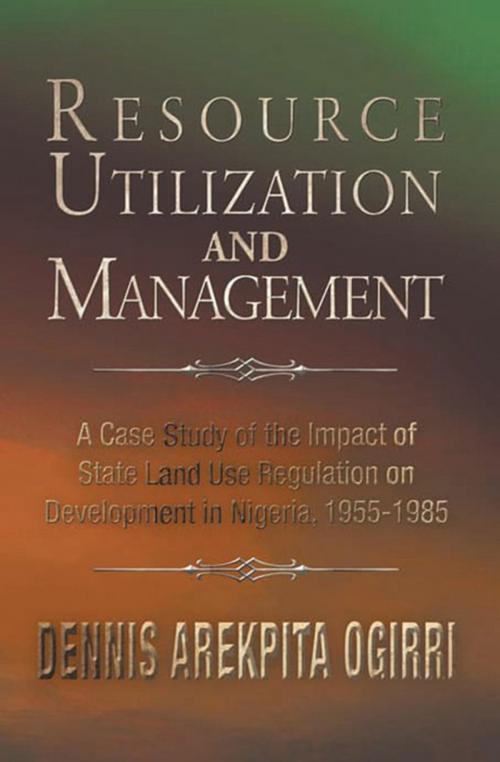Resource Utilization and Management
A Case Study of the Impact of State Land Use Regulation on Development in Nigeria, 1955-1985
Nonfiction, Reference & Language, Education & Teaching| Author: | Dennis Arekpita Ogirri | ISBN: | 9781477131268 |
| Publisher: | Xlibris US | Publication: | July 18, 2012 |
| Imprint: | Xlibris US | Language: | English |
| Author: | Dennis Arekpita Ogirri |
| ISBN: | 9781477131268 |
| Publisher: | Xlibris US |
| Publication: | July 18, 2012 |
| Imprint: | Xlibris US |
| Language: | English |
This book is on the study of resource utilization and management, a case study of the impact of state land ownership and land use regulation on development in Nigeria from 1955-1985.
In 1978, the Federal Military Government of Nigeria promulgated a Land Use Decree whose objectives were to introduce a uniform land policy for the whole country, control hoarding and speculating in land, and facilitate the allocation of land for national development. However, critics of the decree argued that the new land policy amounted to nationalization of land in the country, and wondered whether such development strategy was appropriate in the 21st century
In light of the foregoing this author examined the impact of the new land policy on development in Nigeria from 1955-1985, using qualitative and quantitative methods. The beginning and end of the study period coincide with the end of the colonial development plans that started in 1946 and ushered in Nigerias independence in 1960, and the end of the fourth national development plan of 1981-1985 under the military government that overthrew the civilian government in 1966,
The study in this book is significant because of the importance of land as one of the most important factors of production in any society, others being labor, capital, entrepreneurship, and information resources. The implementation problems associated with the new land use law are highlighted. This author believes, however, that it is necessary that further research should be undertaken continually in the future, especially with a view to examining the effectiveness of the implementation experiences since the promulgation of the land use law in 1978.
This book is on the study of resource utilization and management, a case study of the impact of state land ownership and land use regulation on development in Nigeria from 1955-1985.
In 1978, the Federal Military Government of Nigeria promulgated a Land Use Decree whose objectives were to introduce a uniform land policy for the whole country, control hoarding and speculating in land, and facilitate the allocation of land for national development. However, critics of the decree argued that the new land policy amounted to nationalization of land in the country, and wondered whether such development strategy was appropriate in the 21st century
In light of the foregoing this author examined the impact of the new land policy on development in Nigeria from 1955-1985, using qualitative and quantitative methods. The beginning and end of the study period coincide with the end of the colonial development plans that started in 1946 and ushered in Nigerias independence in 1960, and the end of the fourth national development plan of 1981-1985 under the military government that overthrew the civilian government in 1966,
The study in this book is significant because of the importance of land as one of the most important factors of production in any society, others being labor, capital, entrepreneurship, and information resources. The implementation problems associated with the new land use law are highlighted. This author believes, however, that it is necessary that further research should be undertaken continually in the future, especially with a view to examining the effectiveness of the implementation experiences since the promulgation of the land use law in 1978.















